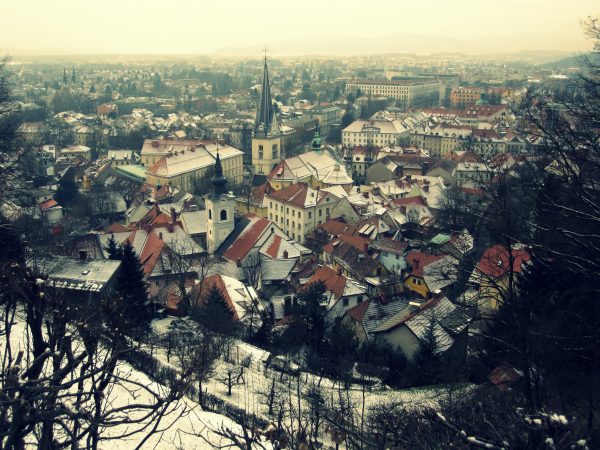 |
| Santa, Miklavž and Mraz |
 |
| White Christmas in Slovenia |
 |
| Santa, Miklavž and Mraz |
 |
| White Christmas in Slovenia |
 * What started off as an Asian tiger with lots of hopes for the future, with the sound administrative background left by their colonial master, all the new nation of Malaysia had to do was to maintain its brain and head for more unexplored frontiers with the sky as their limit. But instead, the elected leaders opted for a self-defeating myopic path sacrificing meritocracy for supremacy of a certain race and religion. People say to coup de grace came when the elected government of GE14 was sabotaged by their own leaders in the name of race and religion again.
* What started off as an Asian tiger with lots of hopes for the future, with the sound administrative background left by their colonial master, all the new nation of Malaysia had to do was to maintain its brain and head for more unexplored frontiers with the sky as their limit. But instead, the elected leaders opted for a self-defeating myopic path sacrificing meritocracy for supremacy of a certain race and religion. People say to coup de grace came when the elected government of GE14 was sabotaged by their own leaders in the name of race and religion again. 
A year previously, they had come out with the eponymous 'White Album' to soaring success. The White Album, their ninth album, a double album, was named simply because of the colour of the album's jacket. The White Album was a phenomenal hit, but it was rumoured that the four members had serious creative differences that most of the time, they had to record separately. It is said Yoko Ono's persistent presence in the studio was their sore point, together with Paul McCartney's domineering attitude.
 Partly encouraged by the skyrocketing sales of the 'White Album', they were coaxed to get together for a brainstorming session. The plan was to have a public concert and to pen new songs. The getting together was a volatile business. The idea of breaking up as a group was still in the air. Their previous agreed arrangement of not allowing spouses into the studio was not followed. Yoko was no mere expressionless fly on the wall making some occasional eerily high-pitched screech; she was more of a leech clinging on to the juices of John Lennon. George Harrison constantly expressed his displeasure over Paul's vetoing of his creative ideas. It led to its zenith when George quit the band, only to be cajoled back to write songs together for their next project. The project is another problem. The band was unsure what it wanted to create. After yo-yoing between cutting singles and albums, they finally decided to make a movie/documentary, 'Let it Be'.
Partly encouraged by the skyrocketing sales of the 'White Album', they were coaxed to get together for a brainstorming session. The plan was to have a public concert and to pen new songs. The getting together was a volatile business. The idea of breaking up as a group was still in the air. Their previous agreed arrangement of not allowing spouses into the studio was not followed. Yoko was no mere expressionless fly on the wall making some occasional eerily high-pitched screech; she was more of a leech clinging on to the juices of John Lennon. George Harrison constantly expressed his displeasure over Paul's vetoing of his creative ideas. It led to its zenith when George quit the band, only to be cajoled back to write songs together for their next project. The project is another problem. The band was unsure what it wanted to create. After yo-yoing between cutting singles and albums, they finally decided to make a movie/documentary, 'Let it Be'.
"Let it Be' came to fruition in 1970, and a few months, the Beatles split.
60 hours of video and 150-hour audio recordings were left in the estates of the remaining Beatles and their estates. To keep the band's legacy alive and make some moolah on the side, Peter Jackson was hired to make a 'documentary within a documentary'. He managed to squeeze it down to ~7.5 hours.The documentary brings viewers up close into the recording studios to show just how talented the Fab Four were. Just how easily their creative juices flow and how seamlessly song lyrics and melodies welled up.
 |
| Get Back! |
One must remember that the footages are not raw material but recorded with the 'actors' knowledge. They were aware that they were being taped, sometimes breaking the fourth wall. Hence, they must appear on tape to do the socially accepted thing.
What I learned after watching Fab Four's behaviour, I gather that Paul is a prolific writer of songs but somewhat wants his way of doing things. George feels stunted as a musician, Lennon is too profoundly into Yoko, and Ringo just gets along with a little help from his friends.
 |
Miniature boats on Karthika Purnima to commemorate the rich maritime glory of ancient Odisha. It marks the change of monsoon tides. Sail is set for Java from Odisha. |
 |
| Karthik Bath in Odisha |
 |
| Soviet SS4 ballistic missiles. |